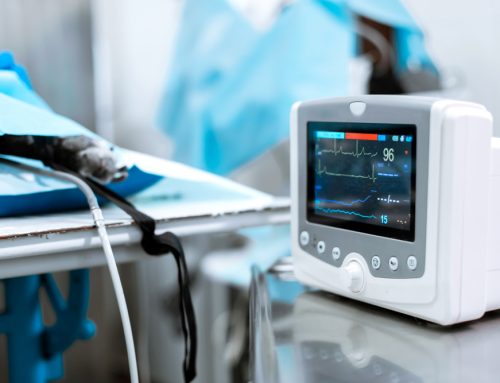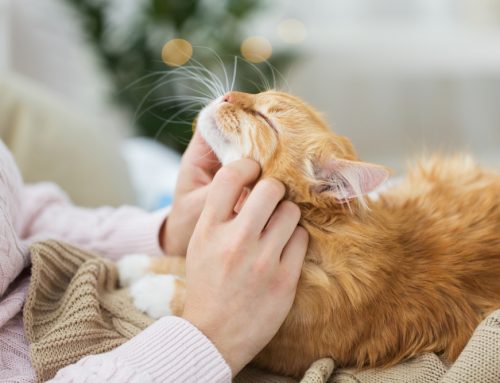At Associated Veterinary Medical Center, your pet’s health and quality of life are our top priority. That’s why we’re proud to offer alternative therapies in addition to conventional veterinary medicine to help your pet feel her best. Here’s what you need to know about acupuncture, K-laser therapy, and massage.
Acupuncture
We are grateful to have Dr. Benson, who is certified by the Chi Institute of Chinese Medicine as a veterinary acupuncturist, on our team. When performed properly, acupuncture is one of the safest treatment methods available. Few side effects are seen, making it ideal for compromised patients. The needles cause little, if any, pain, and animals typically relax or become sleepy once they are in place.
Among many other beneficial effects, acupuncture increases circulation, relieves muscle spasms, stimulates nerves, and stimulates the body’s defense system. Acupuncture is now known to affect all major physiologic systems, including the musculoskeletal, hormonal, and cardiovascular systems.
Acupuncture is most commonly used for:
- Musculoskeletal problems
- Arthritis
- Skin problems
- Nervous disorders
- Reproductive disorders
- Respiratory problems
- Poor immunity
- Internal medicine problems, such as heart and kidney disease
Laser therapy
Laser therapy has become increasingly popular in veterinary medicine. Class IV lasers use a flow of light energy to either stimulate or inhibit biochemical pathways at the cellular level. The laser penetrates skin without heating or harming it and provides a variety of benefits, including:
- Relief of acute and chronic pain
- Increased local circulation to speed tissue repair
- Stimulation of the immune system
- Reduced inflammation
- Enhanced collagen and muscle repair
- Improved tissue healing
Patients with a variety of ailments can benefit from laser therapy, including:
- Surgical incisions
- Osteoarthritis
- Skin wounds
- Tendon and ligament injuries
- Muscular injuries
- Dental problems
Laser treatments are performed by slowly sweeping a wand-like device on the skin of the target area. Individual treatments last approximately 4 to 8 minutes. The number of treatments depends on the condition. Surgical incisions and dental issues often require only one treatment, but more extensive wounds and chronic problems may require multiple treatments per week over several weeks.
Massage

Therapeutic massage is a rapidly growing area of veterinary medicine. We are proud to have Sandra Farley, an experienced and licensed veterinary technician, certified animal aromacologist, and a licensed and national board-certified small animal massage practitioner on our team. Massage is offered in the comfort of your pet’s home environment or is offered during hospitalization. Massage therapy takes into consideration the whole pet and may be beneficial in a number of areas, including:
- Reduced anxiety
- Shortened healing time of strained muscles and sprained ligaments
- Improved digestion
- Decreased blood pressure
- Strengthened immune system
- Reduced muscle spasms
- Increased range of motion and joint flexibility
- Improved circulation
Massage treatments are typically relaxing for pets, who may even fall asleep during sessions. The length and number of treatments will depend on the condition.
If you think your pet could benefit from alternative therapy options, contact our hospital to set up a consultation.





